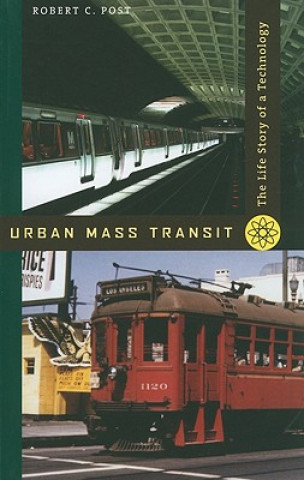
Kézbesítés
Vásárlási tanácsadó





Nem vált be? Semmi gond! Nálunk 30 napon belül visszaküldheti
 Ajándékutalvány
bármilyen értékben
Ajándékutalvány
bármilyen értékben
Ajándékutalvánnyal nem nyúlhat mellé. A megajándékozott az ajándékutalványért bármit választhat kínálatunkból.
Urban Mass Transit
 Angol
Angol
 94 b
94 b
30 nap a termék visszaküldésére
Ezt is ajánljuk


Technological choices depend on, and are part of, contests over political power, as the history of mass transit vividly illustrates. From horse-drawn omnibuses to subways to light rail, this volume highlights the technological and social struggles that have accompanied urbanization and the need for an efficient and cost-effective means of transportation in cities. Post depicts mass transit as a technology-rather, as a technological system-that provided an essential complement to industrialization, urbanization, and, ultimately, to the rise of consumer culture. He begins his narrative with the omnibus and horsecar in the 1830s and takes it to the renaissance of urban mass transit at the turn of the 21st century. Post focuses on innovations in the United States as well as worldwide developments. At the heart of the story is the streetcar, a conveyance that played a central role in the development of all U.S. cities and towns. For generations of Americans, streetcars were essential to everyday life. Once dominating the urban landscape in towns and cities throughout the United States, the streetcar has all but disappeared. Post traces its evolution and demise, debunking the urban myth that the downfall of the electric streetcar was directly attributable to the corporate malfeasance of General Motors and others from the automotive world. Post concludes with a meditation on the prospects for mass transit in a postmodern society that must face up to the contradictions of privatized mobility and the reality of dwindling natural resources.
Információ a könyvről
 Angol
Angol
Kategória




 Hogyan vásároljunk
Hogyan vásároljunk



















